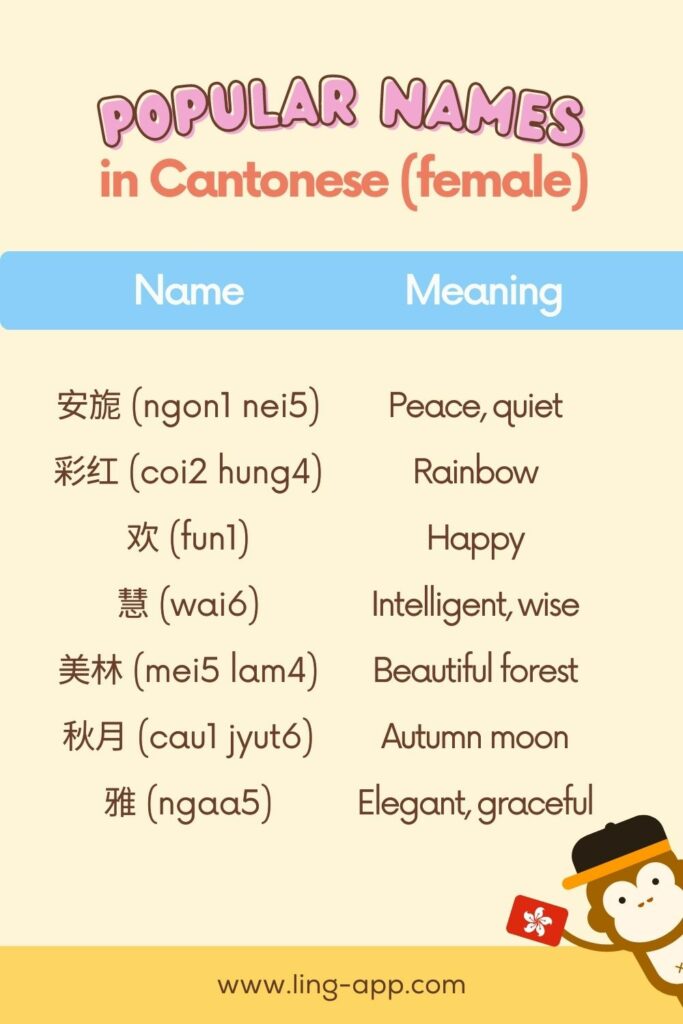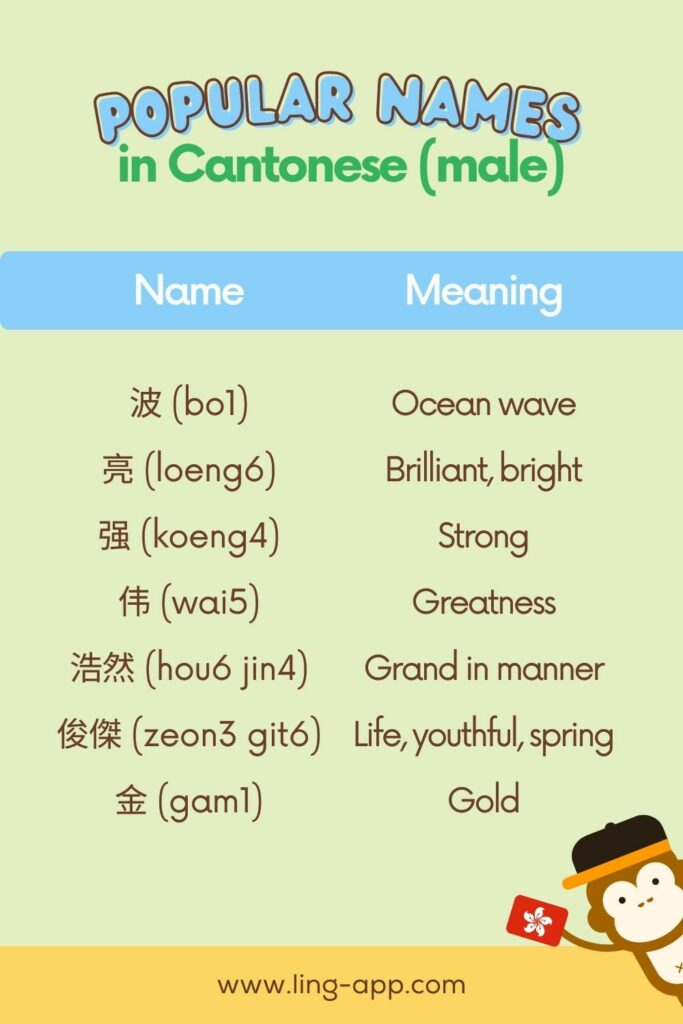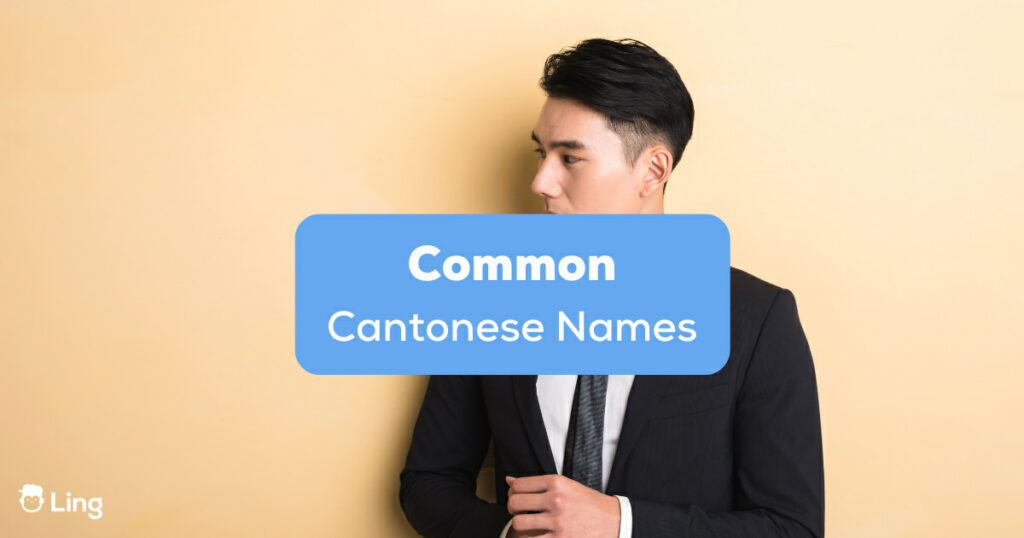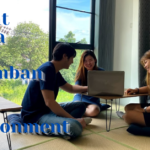Have you ever wondered what your Cantonese/Chinese name is? Today, we will learn about common Cantonese names (名 meng2) and walk you through their unique symbolism and meanings. Are you ready for that? If you are interested in learning Cantonese, keep reading below!
Why Learn Cantonese?
Are you confused by what we mean when we say “Cantonese”? You see, Cantonese is one of the Chinese language varieties spoken in the southern part of the People’s Republic of China or Mainland China, particularly in Guangdong Province. It is also the Chinese language spoken in Hong Kong, Macau, and amongst the Chinese diaspora.
Cantonese seems difficult to learn, especially for a non-native speaker. English speakers and other languages might find it hard to learn because it uses traditional characters and has different tones that affect the meaning of the words. There is also no standard romanization system used in Cantonese, unlike Mandarin, which uses Pinyin. But, if you’re really into learning Cantonese, do not assume that it’s so hard to learn without trying.
So today, let us learn the common Cantonese names that Hong Kongers use. You will discover many things about Cantonese names, surnames, and even addressing a Hong Konger. Romanization of the words is also available to guide you with the pronunciations.
Common Facts And Trivia About Cantonese Names
- Hong Kong names are based on Chinese naming customs.
- In Cantonese alphabet and writing, Hong Kongers employ Chinese characters to write English names.
- Structure: Family Name + First Name + Second Name (3 Elements) orFamily Name + Given Name (2 Elements)
- As the individual’s identification, the given name is selected at birth. One or two syllables/Chinese characters are possible. Two-syllable/Chinese characters names can be written in Cantonese combined, hyphenated, or separated into two. However, in Hong Kong, it is customary to write one’s given name as two separate words.
- Family name and given name are written without spaces.
- Many Chinese characters can be used as both personal and family names.
- The person’s family name is inherited from their parents and shared with other immediate family members and relatives. It appears before the given name or first name.
- Elements: Every element of a Chinese name has meaning. Given names frequently have a literal meaning that indicates a desirable value, attribute, or characteristic for the individual. Usually, parents give their children names that symbolize their expectations. They do not give names with negative meanings. They even consult a fortune teller.
- Do you love your pets? Why not check this extensive list of animal names in Cantonese?
- Names have different aspirational implications for men and women. But, when it was being translated to the Roman alphabet, telling the gender using the name appeared to be tricky.
- There are two ways to come up with your Cantonese name. The first one is using the meaning of your name, which is the traditional one. The second one is by taking out the sound of Chinese characters and creating a Cantonese name comparable to your English name. Example: Daniel (Da, Ni, El): 丹 (daan1) 尼 (nei4) 爾 (ji5) = 丹尼爾 (daan1 nei4 yi5)
- It is neither common nor appropriate to name a child after a parent or other relative.
- In some families, immediate siblings may have the same character in their names, referred to as a “generation” name.
- Cantonese speakers use their own Pinyin system, which differs from mainland Chinese Mandarin spellings.
- Because there are so many ways to express Chinese characters in English, the same Chinese name can be spelled with various spellings depending on the dialect and transcription system employed.
- During the marriage, women do not change their legal names. Some government employees may prefer to use their husband’s surname before their own.
- Close friends and family may address one another according to their social standing or kinship.
- There are also specific names for colors in Cantonese, which have their own specific symbolism and meaning.
Pronunciation Of Common Cantonese Names
- Jyutping: Jyutping’s digits are tone marks that can be erased to make reading easier.
- You need to learn how to pronounce the names right. Cantonese is used to be known and defined as just a spoken language. It uses the same standard Chinese characters, but Cantonese has a lot of differences, especially in pronunciation. Cantonese is pronounced differently. It also has nine (9) tones than the regular Chinese languages.
Westernizing Cantonese Names
- Many persons use a ‘westernized’ version of their original Chinese name to adapt to international and English-speaking situations. This will involve changing the order or the arrangement of the name. Format: English name + Cantonese Family Name + Cantonese given name.
- The majority of Hong Kong residents have an English name that they use daily and in foreign and English-speaking situations, which can be chosen by their immediate Cantonese family members or themselves.
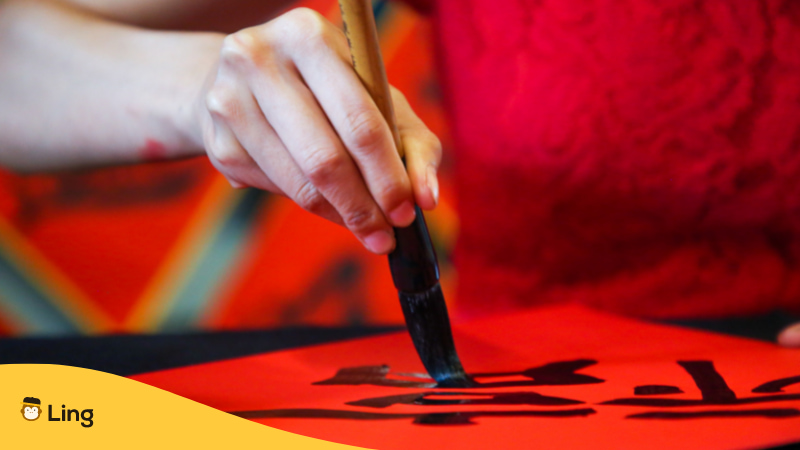
Common Chinese Surnames
Since Cantonese/Chinese family names (姓 sing3) are written before the first name, let us first learn about Cantonese surnames or family names. As said above, Cantonese surnames are inherited from parents and shared with other family members. It is commonly a single word or Chinese character. There are, however, two-syllable last names.
As of today, the most common surname in Hong Kong is Chan (陳 Can4), followed by Leung (梁Loeng4), Cheung (張 Zoeng1), Lau (劉 Lau4), and Li (李 Lei5). Make sure that you know your Cantonese accent because the numbers in Jyutping have meanings!
If you’re familiar with the tones, below is the list of common surnames in Cantonese.
| Surname | Cantonese | Jyutping Romanization | Pronunciation | Meaning |
| Pak | 白 | Baak6 | Bahk | white |
| Chan | 陳 | Can4 | Chan | old, Chen state |
| Chui | 崔 | Ceoi1 | Chui Cheuy | towering |
| Tsui | 徐 | Ceoi4 | Cheuy | slow, Xu state |
| Chun | 秦 | Ceon4 | Cheun | Qin dynasty |
| Chin | 錢 | Cin4 | Chin | money |
| Ching | 程 | Cing4 | Ching | rule, order, journey |
| Choi | 蔡 | Coi3 | Choy | Cai state |
| Tso | 曹 | Cou4 | Tsoh | Cao state |
| Dai | 戴 | Daai3 | Dah-i | to support, to wear |
| Dang | 鄧 | Dang6 | Dang | Deng state |
| Ding | 丁 | Ding1 | Ding | a strong man |
| Dung | 董 | Dung2 | Dung | to supervise, mentor |
| Duen | 段 | Dyun6 | Deun | section, part |
| Fan | 范 | Faan6 | Fahn | example |
| Fong | 方 | Fong1 | Fong | square |
| Fu | 傅 | Fu6 | Foo | teacher |
| Fung | 馮 | Fung4 | Fung | Feng state, to gallop |
| Ga | 賈 | Gaa2 | Gah | merchant |
| Gam | 金 | Gam1 | Gam | gold |
| Geung | 姜 | Goeng1 | Geung | Ginger |
| Gong | 江 | Gong1 | Gong | river |
| Go | 高 | Gou1 | Goh | tall |
| Gu | 顧 | Gu3 | Goo | to regard, to look back |
| Gung | 龔 | Gung1 | Gung | to give, to present |
| Ha | 夏 | Haa6 | Hah | summer |
| Hui | 許 | Heoi2 | Heu-i | to allow; Xu state |
| Heung | 向 | Heung3 | Heung | Direction |
| Ho | 何 | Ho4 | Hoh | Han state |
| Hong | 康 | Hong1 | Hong | healthy |
| Hung | 孔 | Hung2 | Hung | hole, opening |
| Yam | 任 | Jam6 | Yam | to appoint |
| Yau | 邱 | Jau1 | Yao | hills |
| Yik | 易 | Yik6 | Yik | to exchange, easy |
| Yim | 閻 | Jim4 | Yim | village gate |
| Yip | 葉 | Jip6 | Yip | leaf |
| Yeung | 楊 | Joeng4 | Yeung | aspen tree, Yang state |
| Yue | 于 | Jyu1 | Yeu | in, on, at, to go to |
| Yeun | 袁 | Jyun4 | Yeun | long robe |
| Kiu | 喬 | Kiu4 | Kyo | tall |
| Lai / Lay | 賴 | Laai6 | Lah-i | to rely on |
| Lai | 黎 | Lai4 | Lai | a multitude |
| Lam | 林 | Lam4 | Lam | forest |
| Lao | 劉 | Lau4 | Lau | Han royalty, to kill |
| Lee/Li | 李 | Lei5 | Lee | Plum |
| Lui | 李 | Leoi4 | Leu-i | Thunder |
| Liu | 廖 | Liu6 | Lyoo | Liao state |
| Lo | 羅 | Lo4 | Lo | gatherer |
| Leung | 梁 | Loeng4 | Leung | beam, Liang state |
| Lo | 羅 | Lou4 | Loh | cottage |
| Luk | 盧 | Luk6 | Luk | land |
| Lung | 龍 | Lung4 | Lung | Dragon |
| Ma | 萬 | Maa5 | Mah | horse, Mafu state |
| Man | 萬 | Maan6 | Mahn | ten thousand |
| Man | 文 | Man4 | Man | words, to write |
| Mok | 莫 | Mok6 | Mok | not |
| Mo | 毛 | Mou4 | Moh | hair, fur |
| Ng | 吳 | Ng4 | Ng | loud, Wu state |
| Ngai | 魏 | Ngai6 | Ngai | Wei state |
| Pang | 彭 | Pang4 | Pang | descendant of Peng Zu |
| Poon | 潘 | Pun1 | Pun | Pun river |
| Sam | 沈 | Sam2 | Sam | to sink |
| Sek | 石 | Sek6 | Sek | stone |
| Si | 石 | Si2 | See | history |
| Sit | 薛 | Sit3 | Sit | wormwood |
| Seung | 常 | Soeng4 | Seung | common, often |
| So | 蘇 | Sou1 | Soh | to come to |
| Sung | 宋 | Sung3 | Sung | Song state |
| Seun | 孫 | Syun1 | Seun | grandson |
| Tong | 唐 | Tong4 | Tong | Tang dynasty |
| To | 陶 | Tou4 | Toh | pleased |
| Wan | 尹 | Wan5 | Wan | to administer |
| Wong | 汪 | Wong1 | Wong | sea |
| Wu | 胡 | Wu4 | Woo | mustache, beard |
| Tsang | 曾 | Zang1 | Tsang | grandparent/child relationship, Zeng state |
| Chow | 周 | Zau1 | Chao | surrounding, circumference, Zhou state |
| Tse | 謝 | Ze6 | Tseh | thankful, Xie state |
| Cheng | 鄭 | Zeng6 | Cheng | Zheng state |
| Chiu | 趙 | Ziu6 | Choo | Zhao state |
| Cheung | 張 | Zoeng1 | Cheung | to expand, to pull a string |
| Tseung | 蔣 | Zoeng2 | Tseung | wild rice |
| Chung | 鍾 | Zung1 | Chung | bell, Zhongli state |
| Chu | 朱 | Zyu1 | Cheu | crimson, Zhu state |
Common Cantonese/Chinese Names
Now that you already know the common Cantonese last names, let us learn some personal names in Cantonese (名 meng2). Some of them even shows their love for their country. If you’re interested in learning the names of countries in Cantonese, we also have an article just for you.
Now, let’s check male Cantonese names first!
Male Cantonese Names
| Name | Cantonese And Jyutping Romanization | Meaning |
| Aiguo | 愛國 (ngoi3 gwok3) | Love of country |
| Bai | 擺 (baai2) | white, pure, many, cypress tree |
| Bo | 波 (bo1) | Ocean wave |
| Bowen | 博文 (bok3 man4) | Abundant, literate, rich |
| Chang | 張 (zoeng1) | long, prosper, good, smooth, sunlight |
| Chao | 趙 (ziu6) | tide, surpass |
| Chen | 陳 (can4) | morning |
| Cheng | 鄭 (zeng6) | sincere, finished |
| Chih-Cheng | 志成 (zi3 sing4) | Accomplishing goals in life |
| Chia-Hao | 家豪 (gaa1 hou4) | Having great objectives in life |
| Chih-Ming | 志明 (zi3 ming4) | Having clear goals in life |
| Chun-Chieh | 俊傑 (zeon3 git6) | life, youthful, spring |
| Da | 达 (daat6) 大 (daai6) | intelligence, great, attaintment |
| De | 德 (dak1) | virtue |
| Dong | 东 (dung1) 栋 (dung6) | pillar, East |
| Feng | 峯 (fung1) | summit |
| Fang | 芳 (fong1) 方 (fong1) | virtuous, fragrant |
| Fu | 富 (fu3) 芙 (fu4) 甫 (pou2) | hibiscus, wealthy, father, man |
| Gang | 剛 (gong1) | strong |
| Guo | 国 (gwok3) | country |
| Hai | 海 (hoi2) | sea |
| Haoran | 浩然 (hou6 jin4) | grand in manner |
| Hao-Yu | 浩宇 (hou6 jyu5) | a grand house |
| He | 河 (ho4) 和 (wo4) | river or harmony |
| Heng | 恒 (hang4) | constant |
| Hong | 虹 (hung4) 红 (hung4) 弘 (wang4) 鸿 (hung4) 宏 (wang4) | rainbow, expand, vast, wild swan |
| Jia | 佳 (gaai1) 家 (gaa1) | home, auspicious, family |
| Jian | 建 (gin3) 健 (gin6) | establish, build, strong, healthy |
| Jin | 金 (gam1) | gold |
| Jing | 静 (zing6) 精 (zing1) 晶 (zing1) 京 (ging1) | capital city, quiet, crystal, spirit |
| Kai | 凯 (hoi2) 开 (hoi1) 開 (hoi1) 啟 (kai2) | start, victory |
| Lin | 林 (lam4) | forest |
| Liang | 亮 (loeng6) | brilliant, bright |
| Ming | 明 (ming4) | bright |
| Ping | 平 (ping4) | stable, level |
| Qiang | 强 (koeng4) | strong |
| Qiu | 秋 (cau1) 丘 (jau1) | hill, autumn |
| Rong | 荣 (wing4) 融 (jung4) 容 (jung4) | glory, prosperous, appearance, and harmonize |
| Shi | 时 (si4) 实 (sat6) 史 (si2) 石 (sek6) | generation, stone, honest, history |
| Tao | 涛 (tou4) | large waves |
| Wei | 伟 (wai5) | greatness |
| Wen | 文 (man4) | a literate |
| Wu | 武 (mou5) | military |
| Xiang | 翔 (coeng4) 祥 (coeng4) | soar good luck |
| Yang | 洋 (joeng4) 阳 (joeng4) | ocean, male, sunny |
| Ying | 雨泽 (jyu5 zaak6) | Rain or friend, pool or brilliance |
| Yuxuan | 宇轩 (jyu5 hin1) | high house |
| Zihan | 子涵 (zi2 haam4) | tolerate, child |
| Zixuan | 子轩 (zi2 hin1) | child, high |
Female Names In Cantonese
| Name | Cantonese And Jyutping Romanization | Meaning |
| Ai | 爱 (ngoi3) 蔼 (oi2) | love, affection, or friendly, lush |
| An | 安 (ngon1) | quiet, peace |
| An Na | 安納 (ngon1 naap6) | peace, quiet, elegant, delicate, graceful |
| An Ni | 安旎 (ngon1 nei5) | peace, quiet |
| Bao | 宝 (bou2) 苞 (baau1) | bud, treasure |
| Bi | 碧 (bik1) | green jade |
| Caihong | 彩红 (coi2 hung4) | rainbow |
| Chun | 春 (ceon1) | Spring season |
| Fen | 芬 (fan1) 芳 (fong1) | fragrance, perfume |
| Hai Rong | 海榮 (hoi2 wing4) | prosperous, flourishing, coming from the seas |
| Hua | 欢 (fun1) | happy |
| Huang | 凰 (wong4) | phoenix |
| Hui | 慧 (wai6) | intelligent, wise |
| Jìngyi | 靜義 (zing6 ji6) 静怡 (zing6 ji4) | quiet, harmony, gentle, joy |
| Ju | 菊 (guk1) | chrysanthemum |
| Juan | 娟 (gyun1) | beautiful, graceful |
| Kun | 坤 (kwan1) | earth, female |
| Lan | 兰 (laan4) | elegant, orchid |
| Lei | 蕾 (leoi4) | bud |
| Li | 丽 (lai6) | beautiful |
| Ling | 灵 (ling4) 铃 (ling4) | spirit, bell |
| Mei | 美 (mei5) 梅 (mui4) | beautiful or plum |
| Mei-hui | 美惠 (mei5 wai6) | wise, beautiful |
| Meilin | 美林 (mei5 lam4) | beautiful forest |
| Meiling | 美灵 (mei5 ling4) | beautiful spirit |
| Na | 暖 (nyun5) | delicate, elegant |
| Ning | 宁 (ning4) | peaceful |
| Nuan | 娜 (naa4) | genial and warm |
| Qing | 青 (cing1) 清 (cing1) | green, blue, young |
| Qiuyue | 秋月 (cau1 jyut6) | autumn moon |
| Shu | 淑 (suk6) | good, virtuous |
| Shufen | 淑芬 (suk6 fan1) | good fragrance |
| Shu-hui | 淑惠 (suk6 wai6) | submit, obey |
| Su | 素 (sou3) 肃 (suk1) | simple, plain, respectful |
| Wei | 微 (mei4) 薇 (mei4) | Feminine forms mean petite or fern |
| Xiu | 秀 (sau3) | elegant, beautiful, luxurious |
| Xiulan | 秀兰 (sau3 laan4) | beautiful orchid |
| Xiuying | 秀英 (sau3 jing1) | petal, beautiful flower |
| Xue | 雪 (syut3) 学 (hok6) | snow or learning |
| Ya | 雅 (ngaa5) | elegant, graceful |
| Yan | 艳 (jim6) | beautiful |
| Ya-ting | 雅婷 (ngaa5 ting4) | elegant and graceful |
| Yawen | 雅雯 (ngaa5 man4) | graceful clouds |
| Yi | 怡 (ji4) 仪 (ji4) | Feminine versions mean joy or ceremony |
| Yin | 银 (ngan4) 音(jam1) 荫 (jam3) | shelter, sound, silver |
| Yu | 玉 (juk6) 愉 (jyu4) 雨 (jyu5) | pleasant, jade, rain |
| Yun | 云 (wan4) 允 (wan5) | cloud, allow |
| Zhen | 珍 (zan1) 真 (zan1) 贞 (zing1) | real, virtuous, precious |

English Names Using Chinese Characters
| English Name | Cantonese | Jyutping Romanization |
| Daniel | 丹尼爾 | daan1 nei4 ji5 |
| George | 佐治 | zo2 zi6 |
| Jacob | 雅各 | nga5 gok3 |
| Jennifer | 珍妮花 | zan1 nei4 faa1 |
| Kimberly | 金佰利 | gam1 baak3 lei6 |
| Michael | 米高 | mai5 gou1 |
| Noah | 諾亞 | nok6 aa3 |
| Thomas | 湯瑪斯 | tong1 maa5 si1 |
Did you enjoy this list of names in Cantonese? If you’re hungry for more vocabulary, grow it more with our list of plant names in Cantonese. Planning to go to Hong Kong for work opportunities instead? Even people who want to look for a job in Hong Kong must know the job titles, right? So, when looking for work, don’t forget to memorize the different job titles in Cantonese.
How To Address A Hong Konger?
Hong Kongers are the people living in Hong Kong. When you visit Hong Kong, it’s essential to keep yourself noted of the way you address them. It’s not enough that you simply know their names. Here are some things to remember about addressing people in Hong Kong:
- Hong Kongers use several names that they use interchangeably depending on the situation. They have married names, social names, business names with corresponding Cantonese business vocabulary, school names, and English names. But, do not worry too much because they usually tell you which name to use.
- Remember that first name is an intimate form of addressing a Hong Konger. It is for family members, couples, and in-laws. If you’re just normal friends or acquaintances, it’s better to address them by their family names because it can be seen as a sign of disrespect.
- If you are a foreigner, you don’t have to worry because most Hong Kongers will introduce themselves using their English name.
- Close friends can give each other nicknames by repeating the second half of a person’s given name twice.

What’s Next In Learning About Cantonese Names?
You have learned above that the name Ling means ‘spirit’ in Cantonese. But, did you know that there’s another Ling that can help you learn Cantonese more than just a common Cantonese name?
Ling app is a language learning platform that helps develop your language skills. It has well-developed features that provide an engaging yet essential language-learning experience. Ling app will also give you more information about the culture of the languages you are learning through blog posts like this.
Interacting with Hong Kongers doesn’t begin and end in self-introduction in Cantonese. After learning common Cantonese names, widen your vocabulary and develop your language skills using Ling app. So, go to the website or download Ling app from the Google Play Store or App Store now!
